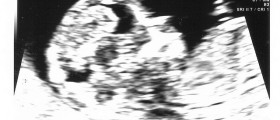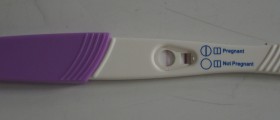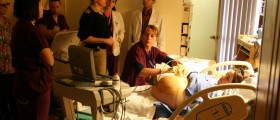
First trimester miscarriages are those that occur in the first twelve weeks of pregnancy. Depending on the source you are looking at, women have a 10 to 20 percent chance of miscarrying during their first trimester. First pregnancies are even more likely to end in miscarriage, and if you include the number of chemical pregnancies, in which an egg was fertilized but that failed to implant into the uterus properly, miscarriage rates can be as high as 50 percent.
I mention these statistics not in order to worry you, but rather to reassure you. There is very little you can do to a healthy pregnancy in order to cause a miscarriage. If you are eating and living healthily, taking folic acid and prenatal supplements, you are doing the best you can. Studies say that around 50 to 70 percent of all miscarriages are triggered by chromosomal abnormalities in the fertilized egg. There are risk factors for miscarriage, and these include advanced maternal age, smoking or drinking alcohol, certain medications, and a history of genetic conditions in your family. Infections, exposure to environmental toxins, and diagnostic tests such as an amniocentesis can increase the risk of miscarriage as well, as does having a history of miscarriage.
If you have noticed symptoms that can point to miscarriage, such as bleeding, heavy cramping or abdominal pain, contacting your doctor or midwife immediately is the best course of action. Sadly, the majority of miscarriages cannot be prevented in any way, but women whop are miscarrying may still require medical assistance.
















Your thoughts on this
Loading...